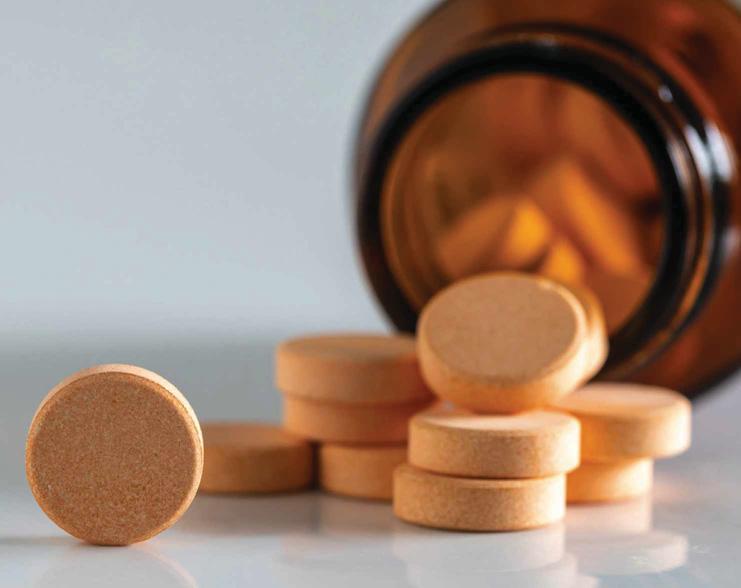Poging GOUD - Vrij
DAILY MULTIVITAMIN CAN DELAY AGE-RELATED MEMORY LOSS
BBC Science Focus
|July 2023
Study finds that a multivitamin pill a day keeps memory decline at bay
-

A breakthrough study has found an affordable way to stave off memory decline: take a daily multivitamin. The three-yearlong study conducted by scientists at Columbia University, and Brigham and Women's Hospital at Harvard University in the US - found that taking multivitamins for as little as one year can delay age-related memory loss by three years.
"Losing aspects of cognition and thinking ability is one of the things that most bothers people about ageing. Despite that, there are really very few strategies that we know of that can mitigate the effects of ageing on cognition or thinking abilities," Dr Adam M Brickman - leader of the study and professor of neuropsychology at Columbia University in New York - told BBC Science Focus.
Dit verhaal komt uit de July 2023-editie van BBC Science Focus.
Abonneer u op Magzter GOLD voor toegang tot duizenden zorgvuldig samengestelde premiumverhalen en meer dan 9000 tijdschriften en kranten.
Bent u al abonnee? Aanmelden
MEER VERHALEN VAN BBC Science Focus

BBC Science Focus
World's biggest cobweb is home to 100,000 spiders
Spiders don't normally create such large colonies, so there's no need to worry about finding one in your basement
1 min
February 2026

BBC Science Focus
A dementia vaccine could be gamechanging – and available already
Getting vaccinated against shingles could protect you from getting dementia, or slow the progression of the disease
1 mins
February 2026

BBC Science Focus
DATA IN SPACE
An unusual spacecraft reached orbit in November 2025, one that might herald the dawn of a new era.
7 mins
February 2026

BBC Science Focus
Climate change is already shrinking your salary
No matter where you live, a new study has found warmer temperatures are picking your pocket
4 mins
February 2026

BBC Science Focus
A MENTAL HEALTH GLOW-UP
Forget fine lines. Could Botox give you an unexpected mental health tweakment?
3 mins
February 2026
BBC Science Focus
Most people with high cholesterol gene don't know they have it
Standard testing struggles to detect the condition
1 mins
February 2026

BBC Science Focus
HOW CAN I BOOST MY IQ?
If you're serious about getting smarter, it's time to ditch the brain-training apps
4 mins
February 2026

BBC Science Focus
Humans are absolutely terrible at reading dogs' emotions
Think you can tell how our furry friends are feeling? Think again
1 mins
February 2026

BBC Science Focus
HOW TO TEACH AI RIGHT FROM WRONG
If we want to get good responses from AI, we may need to see what it does when we ask it to be evil
3 mins
February 2026

BBC Science Focus
What Australia's social media ban could really mean for under-16s
Many people think social media is bad for our kids. Australia is trying to prove it
5 mins
February 2026
Translate
Change font size
